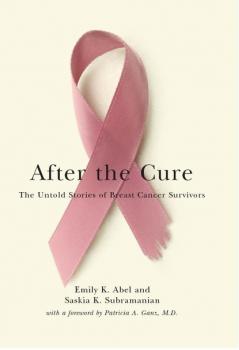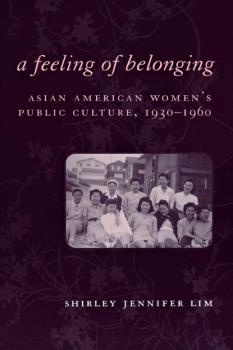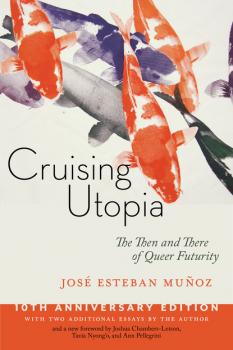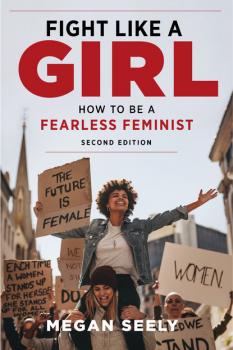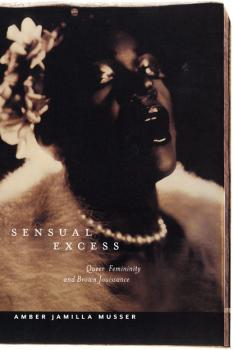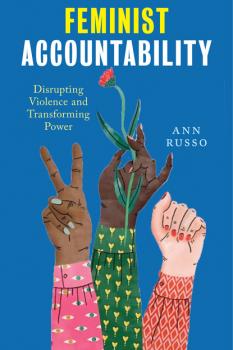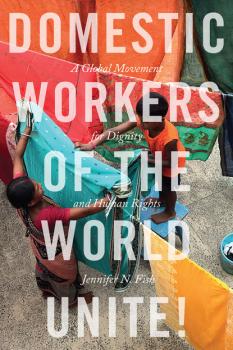ТОП просматриваемых книг сайта:
Управление, подбор персонала
Различные книги в жанре Управление, подбор персонала, доступные для чтения и скачиванияАннотация
2009 Choice Outstanding Academic Title 2009 Association of American University Presses Award for Jacket Design Chemo brain. Fatigue. Chronic pain. Insomnia. Depression. These are just a few of the ongoing, debilitating symptoms that plague some breast-cancer survivors long after their treatments have officially ended. While there are hundreds of books about breast cancer, ranging from practical medical advice to inspirational stories of survivors, what has been missing until now is testimony from the thousands of women who continue to struggle with persistent health problems. After the Cure is a compelling read filled with fascinating portraits of more than seventy women who are living with the aftermath of breast cancer. Emily K. Abel is one of these women. She and her colleague, Saskia K. Subramanian, whose mother died of cancer, interviewed more than seventy breast cancer survivors who have suffered from post-treatment symptoms. Having heard repeatedly that “the problems are all in your head,” many don't know where to turn for help. The doctors who now refuse to validate their symptoms are often the very ones they depended on to provide life-saving treatments. Sometimes family members who provided essential support through months of chemotherapy and radiation don't believe them. Their work lives, already disrupted by both cancer and its treatment, are further undermined by the lingering symptoms. And every symptom serves as a constant reminder of the trauma of diagnosis, the ordeal of treatment, and the specter of recurrence.Most narratives about surviving breast cancer end with the conclusion of chemotherapy and radiation, painting stereotypical portraits of triumphantly healthy survivors, women who not only survive but emerge better and stronger than before. Here, at last, survivors step out of the shadows and speak compellingly about their “real” stories, giving voice to the complicated, often painful realities of life after the cure.This book received funding from the Susan G. Komen Foundation.
Аннотация
When we imagine the activities of Asian American women in the mid-twentieth century, our first thoughts are not of skiing, beauty pageants, magazine reading, and sororities. Yet, Shirley Jennifer Lim argues, these are precisely the sorts of leisure practices many second generation Chinese, Filipina, and Japanese American women engaged in during this time.In A Feeling of Belonging , Lim highlights the cultural activities of young, predominantly unmarried Asian American women from 1930 to 1960. This period marks a crucial generation—the first in which American-born Asians formed a critical mass and began to make their presence felt in the United States. Though they were distinguished from previous generations by their American citizenship, it was only through these seemingly mundane “American”activities that they were able to overcome two-dimensional stereotypes of themselves as kimono-clad “Orientals.”Lim traces the diverse ways in which these young women sought claim to cultural citizenship, exploring such topics as the nation's first Asian American sorority, Chi Alpha Delta; the cultural work of Chinese American actress Anna May Wong; Asian American youth culture and beauty pageants; and the achievement of fame of three foreign-born Asian women in the late 1950s. By wearing poodle skirts, going to the beach, and producing magazines, she argues, they asserted not just their American-ness, but their humanity: a feeling of belonging.
Аннотация
A 10th anniversary edition of this field defining work—an intellectual inspiration for a generation of LGBTQ scholars Cruising Utopia arrived in 2009 to insist that queerness must be reimagined as a futurity-bound phenomenon, an insistence on the potentiality of another world that would crack open the pragmatic present. Part manifesto, part love-letter to the past and the future, José Esteban Muñoz argued that the here and now were not enough and issued an urgent call for the revivification of the queer political imagination.On the anniversary of its original publication, this edition includes two essays that extend and expand the project of Cruising Utopia , as well as a new foreword by the current editors of Sexual Cultures, the book series he co-founded with Ann Pellegrini 20 years ago. This 10th anniversary edition celebrates the lasting impact that Cruising Utopia has had on the decade of queer of color critique that followed and introduces a new generation of readers to a future not yet here.
Информация о книге
Автор произведения José Esteban Muñoz
Жанр Управление, подбор персонала
Серия Sexual Cultures
Аннотация
Reimagines the field of queer studies by asking “How do we do queer theory?” Imagining Queer Methods showcases the methodological renaissance unfolding in queer scholarship. This volume brings together emerging and esteemed researchers from all corners of the academy who are defining new directions for the field. From critical race studies, history, journalism, lesbian feminist studies, literature, media studies, and performance studies to anthropology, education, psychology, sociology, and urban planning, this impressive interdisciplinary collection covers topics such as humanistic approaches to reading, theorizing, and interpreting, as well as scientific appeals to measurement, modeling, sampling, and statistics. By bringing together these diverse voices into an unprecedented single volume, Amin Ghaziani and Matt Brim inspire us with innovative ways of thinking about methods and methodologies in queer studies.
Аннотация
A blueprint for the next generation of feminist activists Fight Like a Girl offers a vision of the past, present, and future of feminism. With an eye toward what it takes to create actual change and a deep understanding of women’s history and the key issues facing girls and young women today, Megan Seely offers a pragmatic introduction to feminism. Written in an upbeat and personal style, Fight Like a Girl offers an overview of feminism, including historical roots, myths and meanings, triumphs and shortcomings. Sharing personal stories from her own experience as a young activist, as a mother, and as a teacher, Seely offers a practical guide to getting involved, taking action, and waging successful events and campaigns. The second edition addresses more themes and topics than before, including gender and sexuality, self-esteem, reproductive health, sexual violence, body image and acceptance, motherhood and family, and intersections of identities, such as race, gender, class, and sexualities. Fight Like a Girl is an invaluable introduction to both feminism and activism, defining the core tenets of feminism, the key challenges both within and outside the feminist movement, and the steps we can take to create a more socially just world.
Аннотация
Информация о книге
Автор произведения Amber Jamilla Musser
Жанр Управление, подбор персонала
Серия Sexual Cultures
Аннотация
Explores accountability as a framework for building movements to transform systemic oppression and violence What does it take to build communities to stand up to injustice and create social change? How do we work together to transform, without reproducing, systems of violence and oppression?In an age when feminism has become increasingly mainstream, noted feminist scholar and activist Ann Russo asks feminists to consider the ways that our own behavior might contribute to the interlocking systems of oppression that we aim to dismantle. Feminist Accountability offers an intersectional analysis of three main areas of feminism in practice: anti-racist work, community accountability and transformative justice, and US-based work in and about violence in the global south. Russo explores accountability as a set of frameworks and practices for community- and movement-building against oppression and violence. Rather than evading the ways that we are implicated, complicit, or actively engaged in harm, Russo shows us how we might cultivate accountability so that we can contribute to the feminist work of transforming oppression and violence. Among many others, Russo brings up the example of the most prominent and funded feminist and LGBT antiviolence organizations, which have become mainstream in social service, advocacy, and policy reform projects. This means they often approach violence through a social service and criminal legal lens that understands violence as an individual and interpersonal issue, rather than a social and political one. As a result, they ally with, rather than significantly challenge, the state institutions, policies, and systems that underlie and contribute to endemic violence. Grounded in theories, analyses, and politics developed by feminists of color and transnational feminists of the global south, with her own thirty plus years of participation in community building, organizing, and activism, Russo provides insider expertise and critical reflection on leveraging frameworks of accountability to upend inequitable divides and the culture that supports them.
Аннотация
The story of Depo-Provera joins the national struggle over the drug's FDA approval to the state legal issues raised by its contraceptive and criminal justice uses. Depo-Provera is known as an injectable hormonal birth control method, but few are familiar with its dark and complicated history. Depo-Provera was tested on women since the mid-1960s without their informed consent until it was FDA-approved in 1992, but never FDA-approved as chemical castration for male sex offenders. Contraceptive Risk is William Green's landmark study of Depo-Provera. Based on a fascinating combination of archival materials and interviews, the book is framed as three interconnected stories told by Judith Weisz, who chaired the FDA's Public Board of Inquiry on Depo-Provera, a scientific court; by Anne MacMurdo who brought a products liability suit against Upjohn, the drug's manufacturer, for the deleterious side effects she suffered from the drug's use; and by Roger Gauntlett, an Upjohn heir who, when he was convicted of sexual assault, refused to take a dose of his family's own medicine as a probation condition. Together these three stories of Depo-Provera's convoluted fifty year odyssey call for a paradigm shift in pharmaceutical drug development.Contraceptive Risk is a thoroughly researched and engrossing approach to the scientific, political and institutional forces involved in health law and policy, as well as the multifaceted politics of measuring risk.
Информация о книге
Автор произведения William Henry Green
Жанр Управление, подбор персонала
Серия Biopolitics
Аннотация
Аннотация
How the immigration policies and popular culture of the 1980's fused to shape modern views on democracy In the 1980s, amid increasing immigration from Latin America, the Caribbean, and Asia, the circle of who was considered American seemed to broaden, reflecting the democratic gains made by racial minorities and women. Although this expanded circle was increasingly visible in the daily lives of Americans through TV shows, films, and popular news media, these gains were circumscribed by the discourse that certain immigrants, for instance single and working mothers, were feared, censured, or welcomed exclusively as laborers. In The Cultural Politics of U.S. Immigration, Leah Perry argues that 1980s immigration discourse in law and popular media was a crucial ingredient in the cohesion of the neoliberal idea of democracy. Blending critical legal analysis with a feminist media studies methodology over a range of sources, including legal documents, congressional debates, and popular media, such as Golden Girls, Who’s the Boss?, Scarface, and Mi Vida Loca, Perry shows how even while “multicultural” immigrants were embraced, they were at the same time disciplined through gendered discourses of respectability. Examining the relationship between law and culture, this book weaves questions of legal status and gender into existing discussions about race and ethnicity to revise our understanding of both neoliberalism and immigration.
Информация о книге
Автор произведения Leah Perry
Жанр Управление, подбор персонала
Серия Nation of Nations

